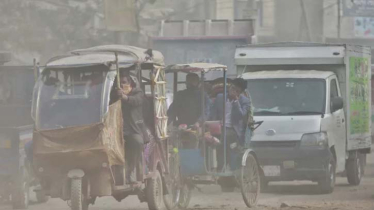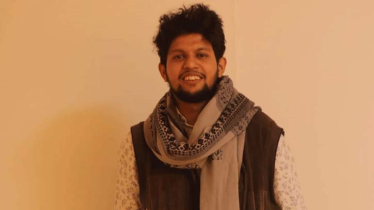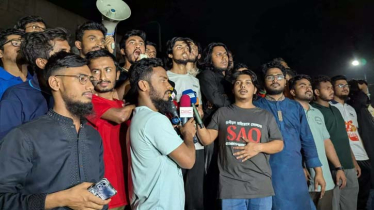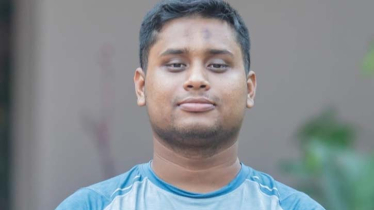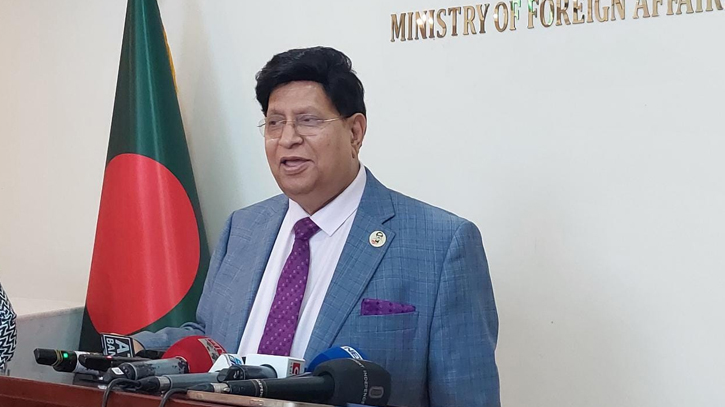
Photo : Collected
The government has said that Bangladesh’s democratic polity has reached a stage where smooth and peaceful transition of power between elected governments has been ensured without any undemocratic arrangement.
Democracies have weaknesses, but they attain maturity only through practicing democracy," the Ministry of Foreign Affairs said in a briefing note shared with diplomats stationed in Dhaka on Tuesday (10 January).
Although many leaders and activists of BNP were keen to participate, it is regrettable that its top leadership decided otherwise on the pretext of their unconstitutional demand for the provision of a caretaker government, the ministry conveyed to diplomats.
In 2011, Supreme Court of Bangladesh declared the unelected caretaker provision "ultra vires" (any deed performed beyond the scope of legal authority) and void as it conflicts with the spirit of democracy.
The Election Commission repeatedly called upon BNP to participate, and the EC was even willing to revise the election schedule if BNP joined.
BNP made this "irrational demand" as its principal political capital and chose to destroy the lives and properties of people, holding them hostage, said the government.
The state of horrific violence that BNP and its allies unleashed throughout the country is only a vivid reminder of their drills in 2001, 2013, 2014 and 2018, the ministry of foreign affairs said.
Since October 28, 2023, they set ablaze nearly a thousand public and private vehicles and over 200 establishments including police hospital premises and ambulances, vandalized nearly a thousand vehicles and many establishments including the residences of Chief Justice and other judges, caused injury to around 1,500 police personnel and around 500 civilians, attacked reporters and camera personnel, killed 24 individuals including two police personnel – one of them mercilessly beaten to death in broad daylight, the foreign ministry observed.
"They sabotaged our railway system, leading to tragic incidents claiming five precious lives including burning a mother and her 3-year-old son alive and leaving many others severely injured," reads the briefing note.
In the lead-up to the election, BNP "geared up its violence" in its efforts to spread fear and terror. On the preceding day of the elections, they carried out arson attacks on polling centres with a view to intimidating the voters, the ministry conveyed to the diplomats.
BNP called for a 48-hour nationwide strike to cut off the communication system and obstruct voters from traveling to their constituencies to cast their votes, it said.
The Benapole Express train was set on fire, killing four passengers, causing severe injuries to many, and burning the passenger train to ashes, it said.
The 12th Parliamentary Election of Bangladesh were held on January 7 in a "free, fair, impartial and transparent" manner with spontaneous participation of the voters.
The people of Bangladesh as well as the international community have witnessed that the Bangladesh Election Commission, an independent and empowered constitutional body, supported by the incumbent government, can effectively conduct free, fair and credible elections, the ministry said.
The 2024 polls have set a new milestone in the history of the journey of parliamentary democracy in Bangladesh, it said.
People of Bangladesh have demonstrated their unyielding resolve to a rule-based democratic system and peace, progress and stability through their active participation, the foreign ministry said.
"The incumbent government also manifested its unprecedented political commitment to take forward the democratic process, uphold the constitutional mandate, and ensure people’s right to vote."
Despite the calls to boycott, violence and persistent intimidation by the BNP, the people of Bangladesh reinforced their commitment to and aspiration for a peaceful and ‘Smart Bangladesh’ vision, said the government.
"This is a new paradigm in Bangladesh’s electoral history within the constitutional framework, based on trust, credibility, and impartiality in the election process in line with people’s aspirations," it said.
The Indian High Commission's representative, British High Commissioner to Bangladesh Sarah Cooke, US Ambassador to Bangladesh Peter Haas, European Union Ambassador to Bangladesh Charles Whiteley, Chinese Ambassador to Bangladesh Yao Wen, Russian Ambassador to Bangladesh Alexander Mantytsky, UN Resident Coordinator in Dhaka Gwyn Lewis, and high commissioners and ambassadors from various other countries were present at the "meet and greet" where Foreign Minister Dr AK Abdul Momen spoke briefly. Foreign Secretary Masud Bin Momen was also present.
Messenger/Disha





